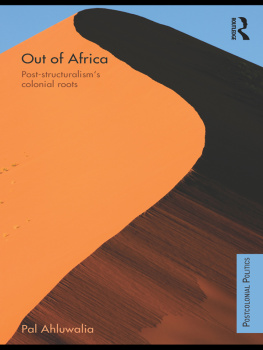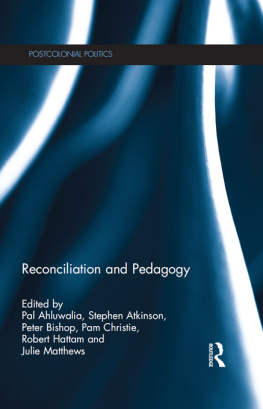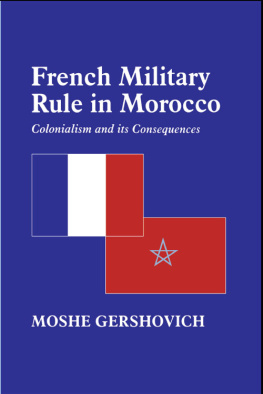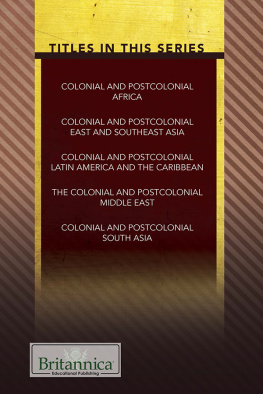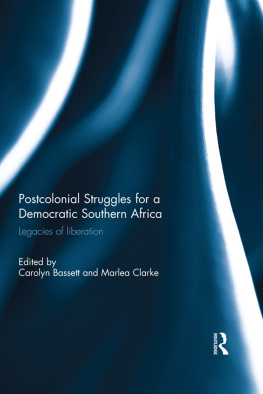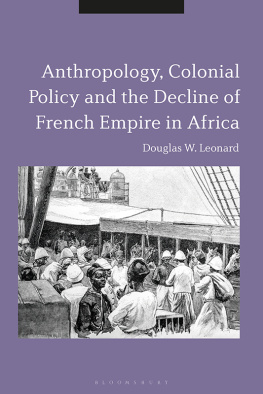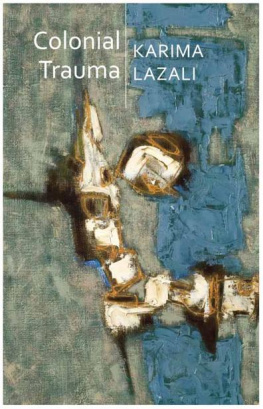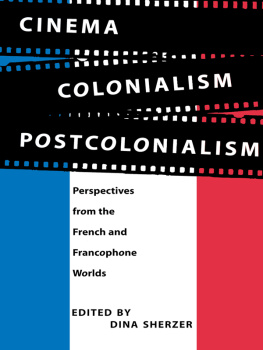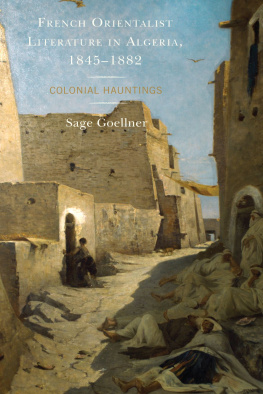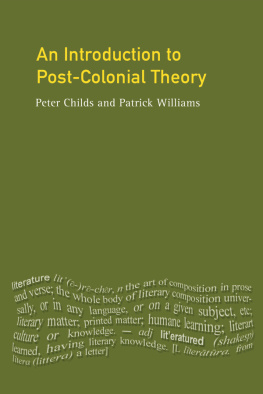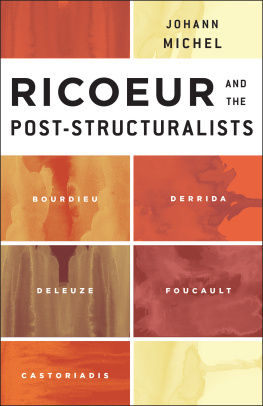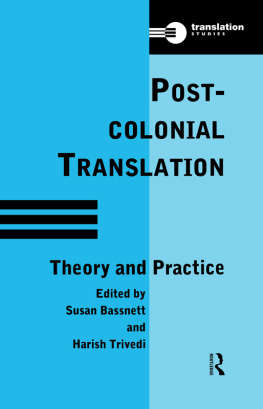Out of Africa
At the heart of this book is the argument that, the fact that so many post-structuralist French intellectuals have a strong colonial connection, usually with Algeria, cannot be a coincidence. The biographical fact that so many French intellectuals were born in or otherwise connected with French Algeria has often been noted, but it has never been theorised. Ahluwalia makes a convincing case that post-structuralism in fact has colonial and postcolonial roots. This is an important argument, and one that connects two theoretical currents that continue to be of great interest, post-structuralism and postcolonialism.
The rereading of what is now familiar material against the background of decolonial struggles demonstrates the extent to which it is this new condition that prompted theory to question long-held assumptions inscribed in the European colonial enterprise. The wide-ranging discussion, ranging across authors as different as Foucault, Derrida, Fanon, Althusser, Cixous, Bourdieu and Lyotard, enables the reader to make connections that have remained unnoticed or been neglected. It also brings back into view a history of struggles, both political and theoretical, that has shaped the landscape of critique in the social sciences and humanities.
This clear and lucid discussion of important and often difficult thinkers will be widely read and widely debated by students and academics alike.
Pal Ahluwalia is a Pro Vice-Chancellor and Vice President of the University of South Australia. He was previously Professor of the Politics Department, University of Adelaide, Australia, Professor with the University of California, San Diego, USA and Professor at Goldsmiths, University of London, UK. He is co-editor of the Routledge journals African Identities, Social Identities and Sikh Formations.
Postcolonial politics
Pal Ahluwalia, University of South Australia
Michael Dutton, Goldsmiths, University of London
Leela Gandhi, University of Chicago
Sanjay Seth, Goldsmiths, University of London
Postcolonial Politics is a series that publishes books that lie at the intersection of politics and postcolonial theory. That point of intersection once barely existed; its recent emergence is enabled, first, because a new form of politics is beginning to make its appearance. Intellectual concerns that began life as a (yet unnamed) set of theoretical interventions from scholars largely working within the New Humanities have now begun to migrate into the realm of politics. The result is politics with a difference, with a concern for the everyday, the ephemeral, the serendipitous and the unworldly. Second, postcolonial theory has raised a new set of concerns in relation to understandings of the non-West. At first, these concerns and questions found their home in literary studies, but they were also, always, political. Edward Saids binary of Europe and its other introduced us to a style of thought that was as much political as it was cultural as much about the politics of knowledge as the production of knowledge, and as much about life on the street as about a philosophy of being, a new, broader and more reflexive understanding of politics and a new style of thinking about the non-Western world, make it possible to think politics through postcolonial theory and to do postcolonial theory in a fashion which picks up on its political implications.
Postcolonial Politics attempts to pick up on these myriad trails and disruptive practices. The series aims to help us read culture politically, read difference concretely and to problematise our ideas of the modern, the rational and the scientific by working at the margins of a knowledge system that is still logocentric and Eurocentric. This is where a postcolonial politics hopes to offer new and fresh visions of both the postcolonial and the political.
The Postcolonial Politics of Development
Ilan Kapoor
Out of Africa
Post-structuralisms colonial roots
Pal Ahluwalia
Out of Africa
Post-structuralisms colonial roots
Pal Ahluwalia

LONDON AND NEW YORK
First published 2010 by Routledge
2 Park Square, Milton Park, Abingdon, Oxon, OX14 4RN
Simultaneously published in the USA and Canada
by Routledge
270 Madison Avenue, New York, NY 10016
Routledge is an imprint of the Taylor & Francis Group, an informa business
This edition published in the Taylor & Francis e-Library, 2010.
To purchase your own copy of this or any of Taylor & Francis or Routledges collection of thousands of eBooks please go to www.eBookstore.tandf.co.uk.
2010 Pal Ahluwalia
All rights reserved. No part of this book may be reprinted or reproduced or
utilised in any form or by any electronic, mechanical, or other means, now
known or hereafter invented, including photocopying and recording, or in any
information storage or retrieval system, without permission in writing from
the publishers.
British Library Cataloguing in Publication Data
A catalogue record for this book is available from the British Library
Library of Congress Cataloging in Publication Data
Ahluwalia, D. P. S. (D. Pal S.)
Out of Africa: post-structuralisms colonial roots / Pal Ahluwalia.
p. cm.
Includes bibliographical references.
1. PoststructuralismAfricaPhilosophy. 2. StructuralismAfricaPhilosophy.
3. StructuralismAlgeriaPhilosophy. 4. FrenchAlgeriaHistory.
5. AlgeriaColonization. 6. FranceColoniesAfrica. I. Title.
B841.4.A37 2010
146'.960965dc22 2009033335
ISBN 0-203-85810-7 Master e-book ISBN
ISBN 13: 978-0-415-57069-5 (hbk)
ISBN 13: 978-0-415-57070-1 (pbk)
ISBN 13: 978-0-203-85810-3 (ebk)
ISBN 10: 0-415-57069-7 (hbk)
ISBN 10: 0-415-57070-0 (pbk)
ISBN 10: 0-203-85810-7 (ebk)
For Babaji, Bhai Sahib Mohinder Singh Ji, Sue, Kultar, Moni, Bhapo, my father Harcharan and in loving memory of my mother Balbir Kaur.
Contents
Acknowledgements
This book is an attempt to bring together the seemingly disparate worlds that I occupy. At its core, it is about bringing my work on Africa together with my interest in social theory. It is about moving away from an area studies approach where Africa is translated into European discourses by the specialist Africanist. In my work, I have persistently endeavoured to move from such a framework by deploying a postcolonial perspective, to offer a different rendering and account of the myriad complexities that mark both the continent and the African subject.
Perhaps the most profound influence on my intellectual project has been that of the cultural theorist, Edward Said. Said often claimed that he led two separate lives that of an English Professor at Columbia University as well as that of perhaps the best-known Palestinian spokesman. He argued that in the classroom these two worlds were never brought together that his political work did not bear on his work as an English professor. I have criticized Said for this, arguing that how could he make such a claim on the grounds that these two worlds were fundamentally linked. Yet, as I reflect on my own intellectual trajectory, I am struck at how I have tried to keep my two worlds separate my most obvious Sikh identity and my work as a student of Politics. It is in this context that I have only recently recognized that this in fact is my uniquely punishing destiny and hence, I find myself increasingly drawn into projects where these two worlds intersect.

